The 31st Asian Congress of Thoracic and Cardiovascular Surgery (ATCSA) officially took place in Ho Chi Minh City on the afternoon of November 16. This is the second time Vietnam has hosted this prestigious medical forum, attracting more than 500 professors, researchers, and doctors from Vietnam, the US, Germany, France, Belgium, Poland, Canada, Australia, India, Japan, Taiwan, Korea, Thailand, Indonesia, Singapore, Malaysia, the Philippines... to attend.
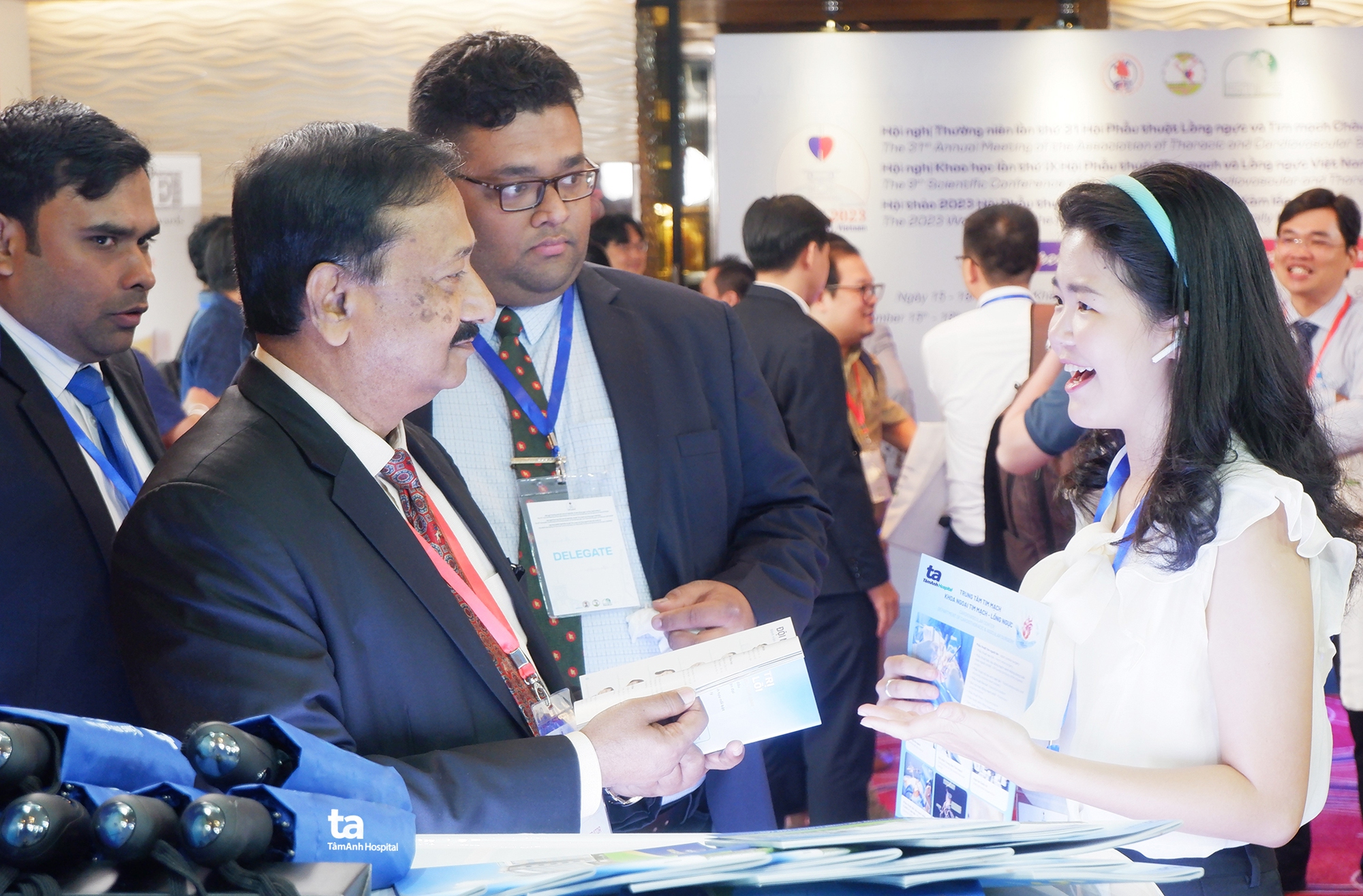
ATCSA 2023 Conference attracts hundreds of Vietnamese and international experts and doctors
The highlight of this year's conference is the Scientific Workshop "Minimally Invasive Mitral Valve Surgery" with a demonstration of minimally invasive endoscopic heart surgery techniques at Tam Anh Hospital, Ho Chi Minh City. The workshop was attended by two leading experts in Cardiovascular and Thoracic Surgery in the world and Vietnam: Professor Tirone E. David (University of Toronto, Canada), Professor Tom C. Nguyen (University of California San Francisco, USA), Professor Le Ngoc Thanh (President of the Vietnam Association of Cardiovascular and Thoracic Surgery), Associate Professor Do Kim Que (Head of the Organizing Committee of ATCSA 2023), Doctor Nguyen Minh Tri Vien...
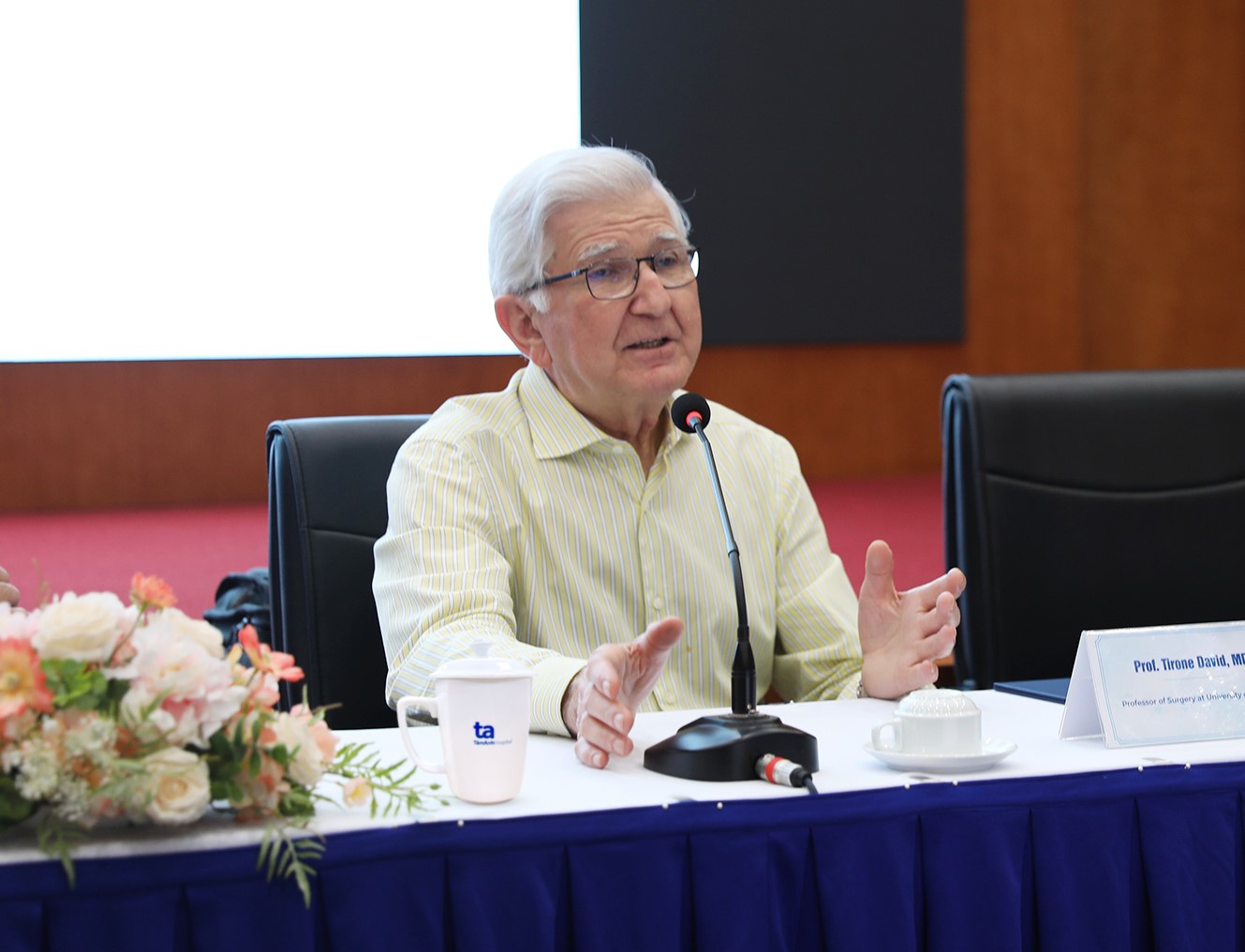
Professor Tirone David discusses the surgery with experts
Mr. H. was diagnosed with mitral valve prolapse leading to valve regurgitation two years ago. The valve regurgitation was mild and had no complications, so he was prescribed medical monitoring and treatment. Recently, he felt short of breath, out of breath, and tired when climbing stairs. Examination at Tam Anh Hospital in Ho Chi Minh City revealed severe mitral valve regurgitation, complications of heart chamber dilation, and stage 2 heart failure.
"The patient needs surgery to repair the valve leaflets to prevent heart failure from progressing, accompanied by life-threatening complications such as arrhythmia, endocarditis, etc.," said Dr. Nguyen Anh Dung, Head of the Department of Cardiovascular and Thoracic Surgery, Cardiovascular Center.
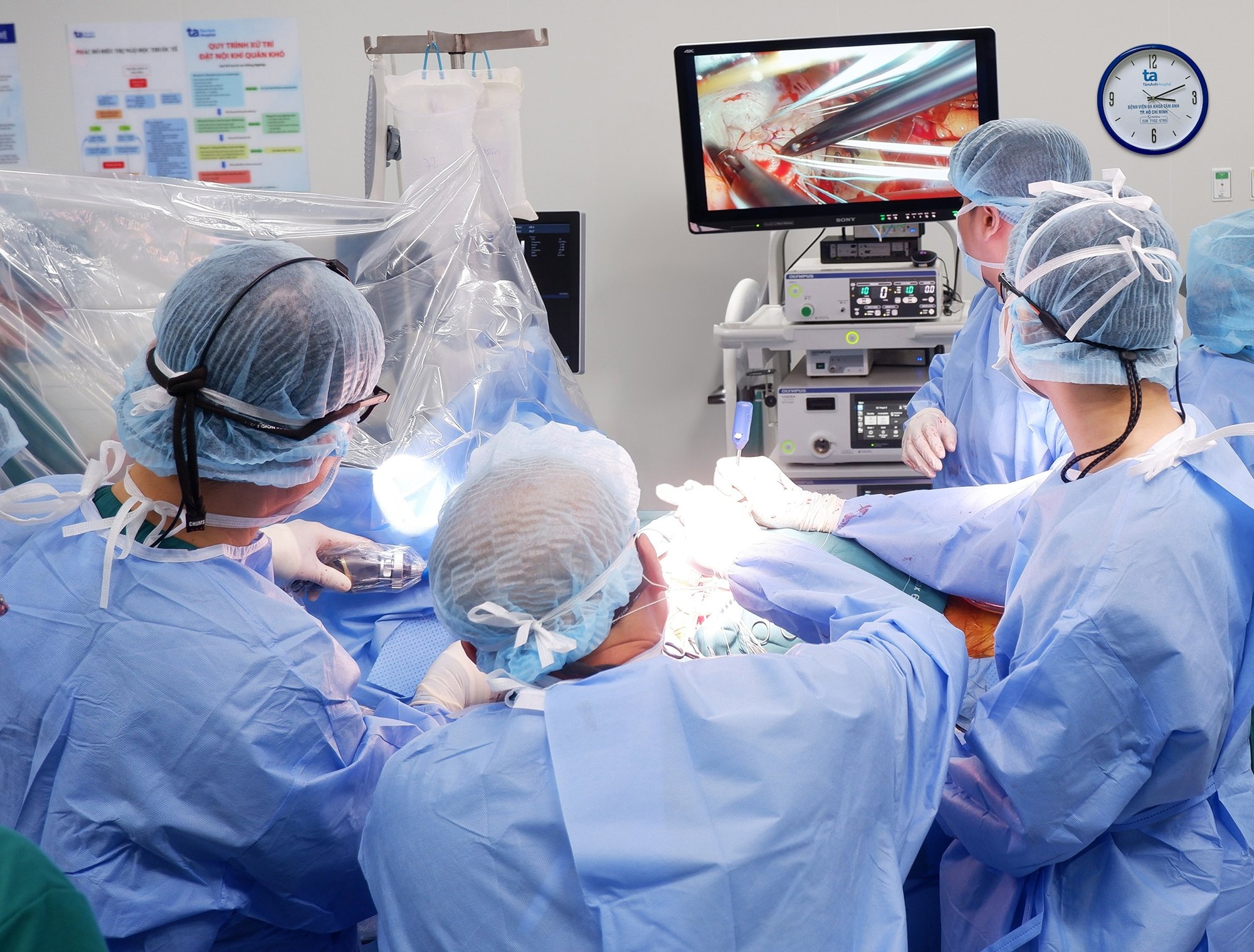
Experts perform minimally invasive endoscopic surgery to repair heart valves for patients
Instead of the traditional surgery method of opening the chest and sawing a section of the sternum about 20cm long, the doctors performed minimally invasive endoscopic surgery to repair the patient's heart valve. This technique only opens 3-4 small holes in the chest wall and a short incision about 4-5cm below the right chest, avoiding a large incision in the middle of the chest, without the need to saw the sternum, thus limiting the risk of chest deformity, large scars, infection, blood loss, endocarditis, arrhythmia, myocardial infarction... during and after surgery.
Combined with an endoscopic camera system that can zoom in to provide clear images of the heart chamber structure, heart valves, large blood vessels, etc. Thanks to that, doctors can easily access, analyze valve damage, and provide accurate treatment in the shortest time.
According to Dr. Dung, to perform this technique, the extracorporeal circulation system (Cardiopulmonary Bypass - CPB) is established through a peripheral route (femoral artery and vein) with a small incision of 3-4cm, which is highly aesthetic and reduces complications, instead of performing it on the aorta in the chest with a large incision in front of the chest.
In particular, the technique of anesthesia combined with erector spinae plane block (ESP) is routinely applied in cardiac surgery at Tam Anh Hospital to effectively reduce pain and limit the use of morphine after surgery.
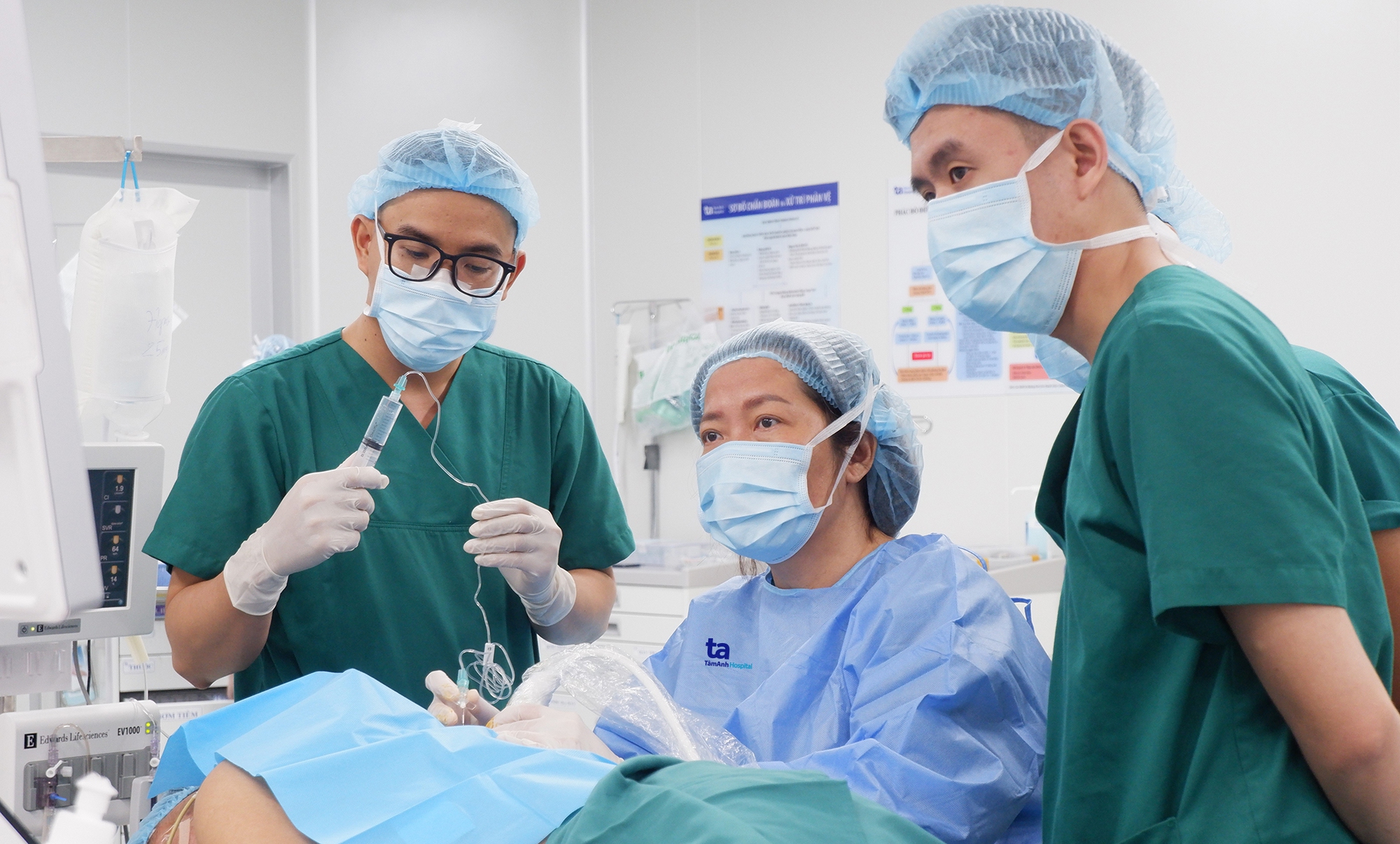
Erector spinae plane (ESP) anesthesia is routinely performed in cardiac surgery at Tam Anh Hospital.
Mr. H. had less pain, less blood loss, was weaned off the ventilator early, could move normally, did rehabilitation exercises 2 days after surgery and was expected to be discharged after 4-5 days, reducing the hospital stay by 50% compared to the mid-chest open surgery method (10-14 days). In particular, the short incision under the chest ensures aesthetics. The recovery process is also shortened to about 4-8 weeks compared to 10-12 weeks with the traditional open surgery method.
"Minimally invasive surgery is not as simple as conventional surgery, but if performed by surgical experts as in the recent surgery, it is a very good alternative for the patient. The surgery went perfectly, the surgeon was skilled and the final result was excellent," commented Professor Tirone David.
In addition to robotic heart surgery, minimally invasive heart surgery with endoscopic assistance is an advanced technique, routinely applied in major cardiovascular centers around the world. Vietnam has started implementing this technique about 10 years ago for cases of not too complicated injuries. At Tam Anh Hospital, diseases of the mitral valve, atrial septal defect, ventricular septal defect, atrioventricular canal, coronary artery disease, cardiac myxoma, aortic valve, etc. have been treated with minimally invasive surgery (MICS) and endoscopy.
Professor Le Ngoc Thanh said that currently, there are 37 cardiac surgery units nationwide. However, only 16 facilities can perform minimally invasive endoscopic surgery and half of these perform it routinely, due to the need for a roadmap for training surgical teams, anesthesia, resuscitation as well as investment in specialized equipment systems.
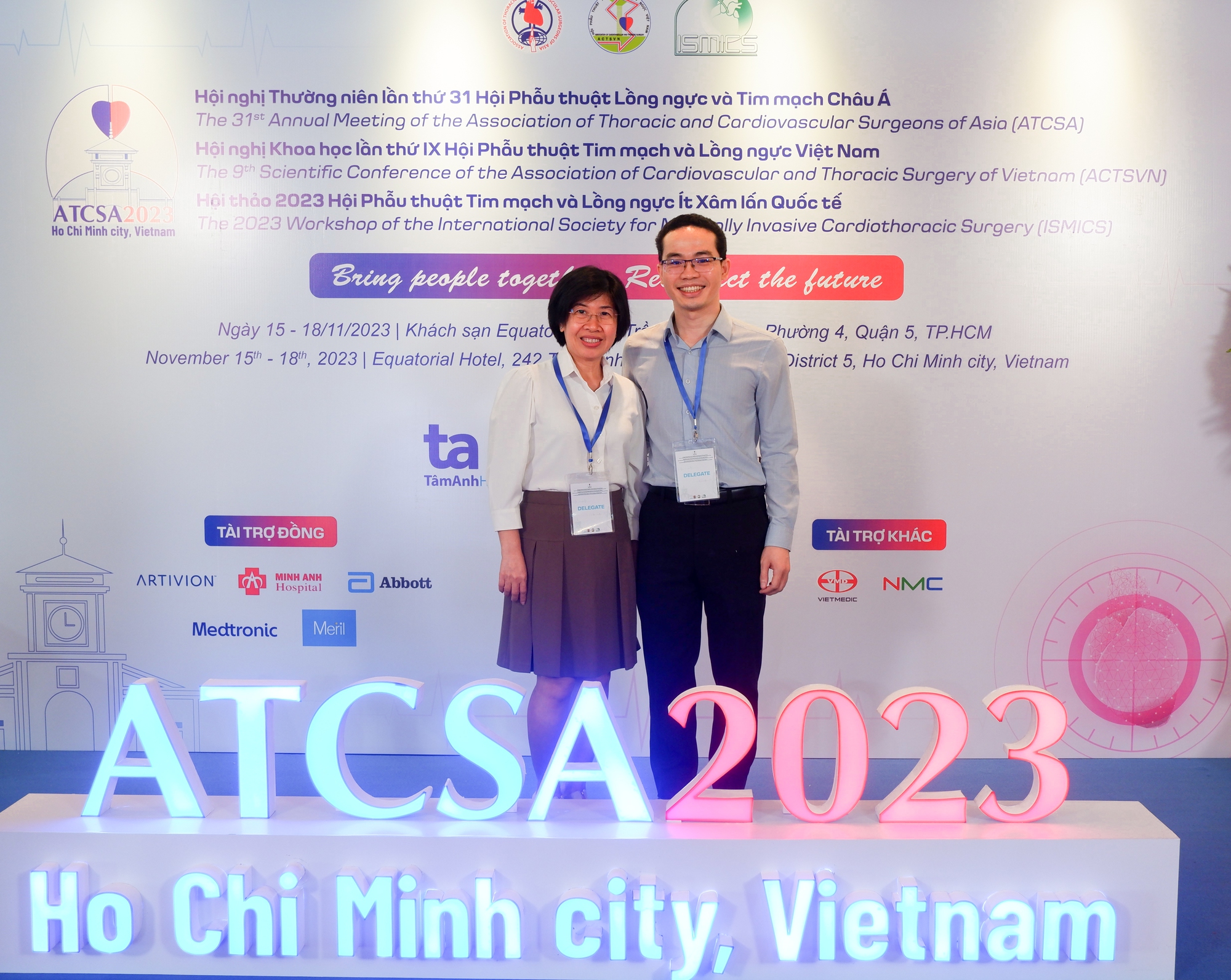
ATCSA 2023 Conference returns to Vietnam after 9 years
The Asian Congress of Thoracic and Cardiovascular Surgery (ATCSA 2023) takes place from November 15-18, in conjunction with the 9th Scientific Conference - Vietnam Association of Cardiovascular and Thoracic Surgeons (ATCSVN) and the International Society of Minimally Invasive Cardiovascular and Thoracic Surgery (ISMICS). This is a prestigious medical forum in Asia and the world; a place where Vietnamese doctors, surgeons, anesthesiologists, and nurses can directly exchange and learn from the world's leading experts, and update advanced techniques for application in diagnosis and treatment of patients.
Source link


![[Photo] Moment of love: Myanmar people are moved to thank Vietnamese soldiers](https://vstatic.vietnam.vn/vietnam/resource/IMAGE/2025/4/3/9b2e07196eb14aa5aacb1bc9e067ae6f)


![[Photo] General Secretary To Lam receives Japanese Ambassador to Vietnam Ito Naoki](https://vstatic.vietnam.vn/vietnam/resource/IMAGE/2025/4/3/3a5d233bc09d4928ac9bfed97674be98)
![[Photo] Special relics at the Vietnam Military History Museum associated with the heroic April 30th](https://vstatic.vietnam.vn/vietnam/resource/IMAGE/2025/4/3/a49d65b17b804e398de42bc2caba8368)

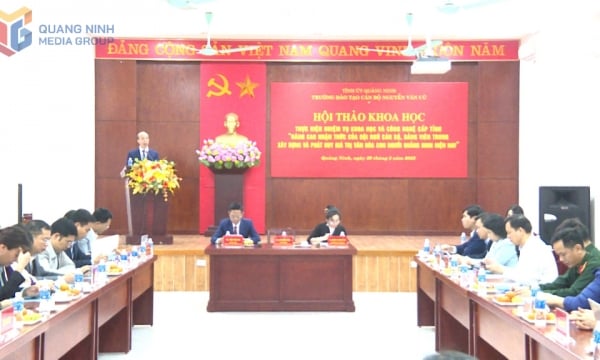

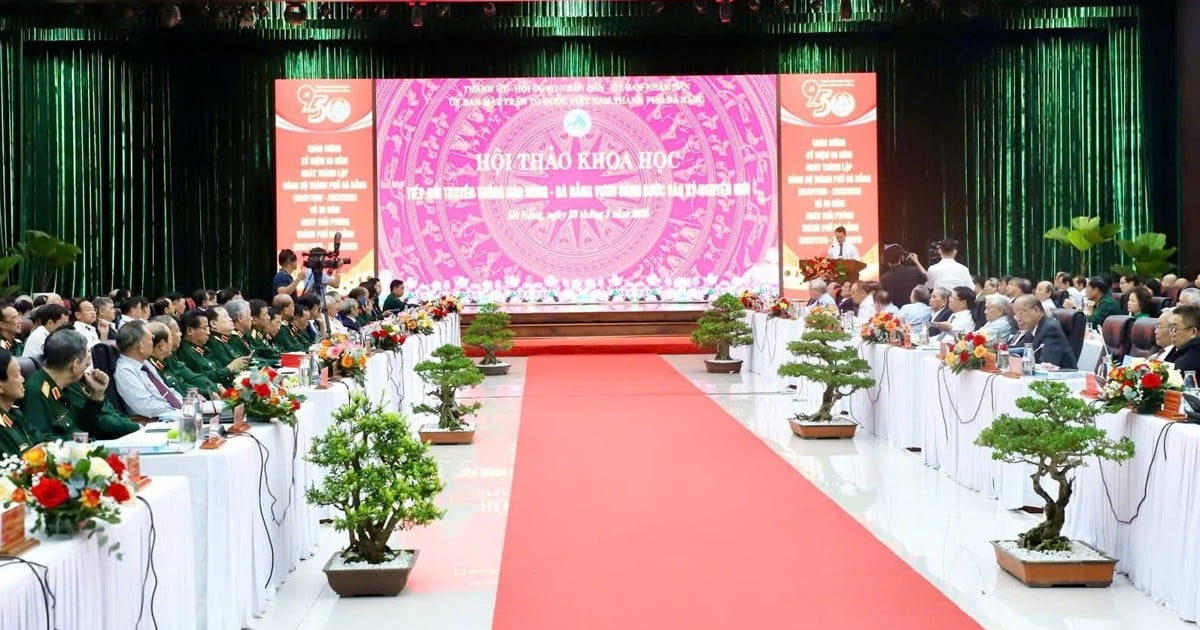






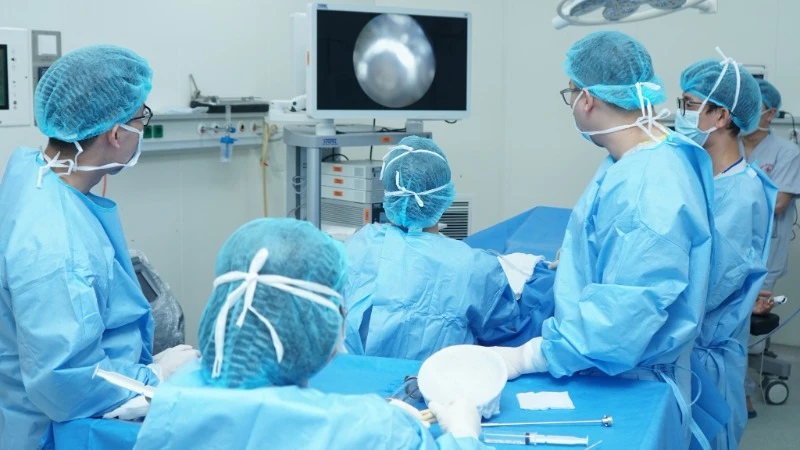

![[Video] Hanoi strengthens food safety control at schools, tightens handling of violations](https://vstatic.vietnam.vn/vietnam/resource/IMAGE/2025/4/3/c9a2202768fb4d6dbd70deaf3f28979f)
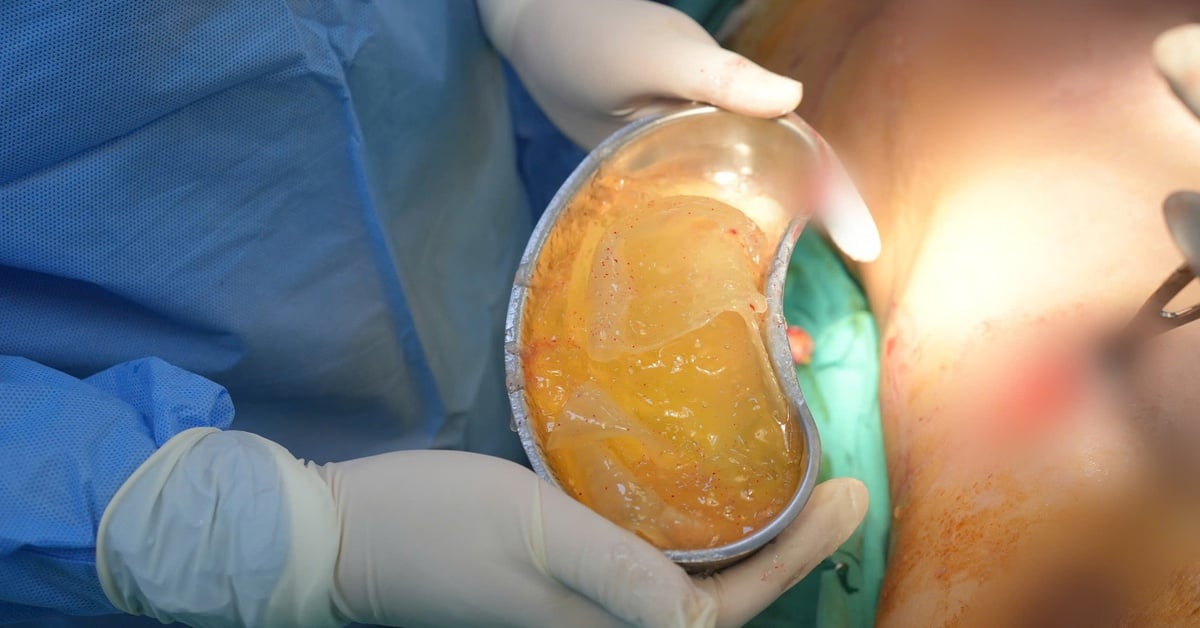






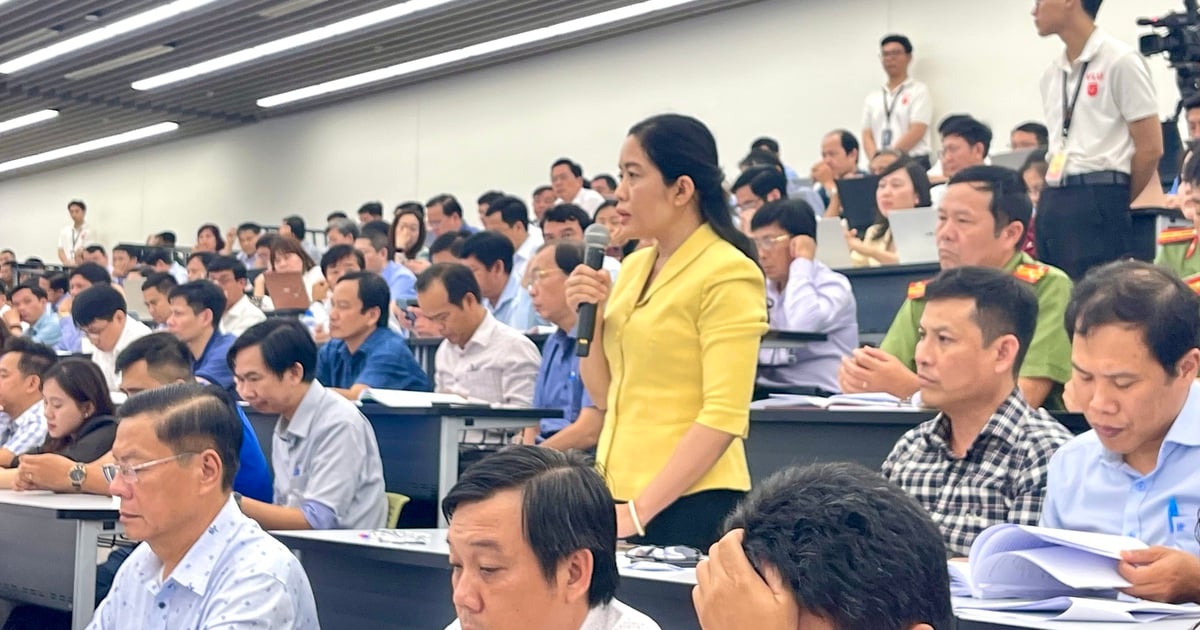
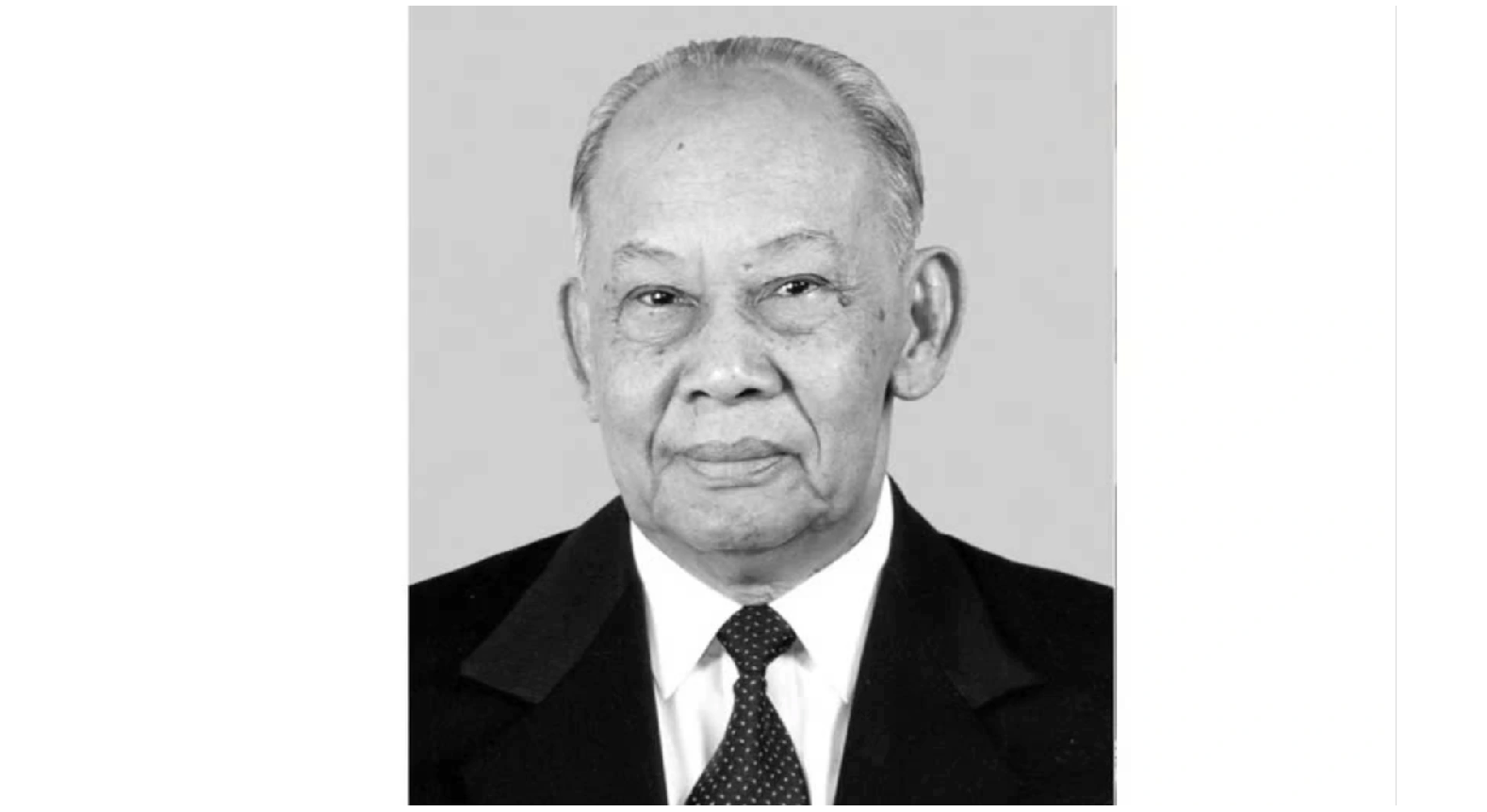












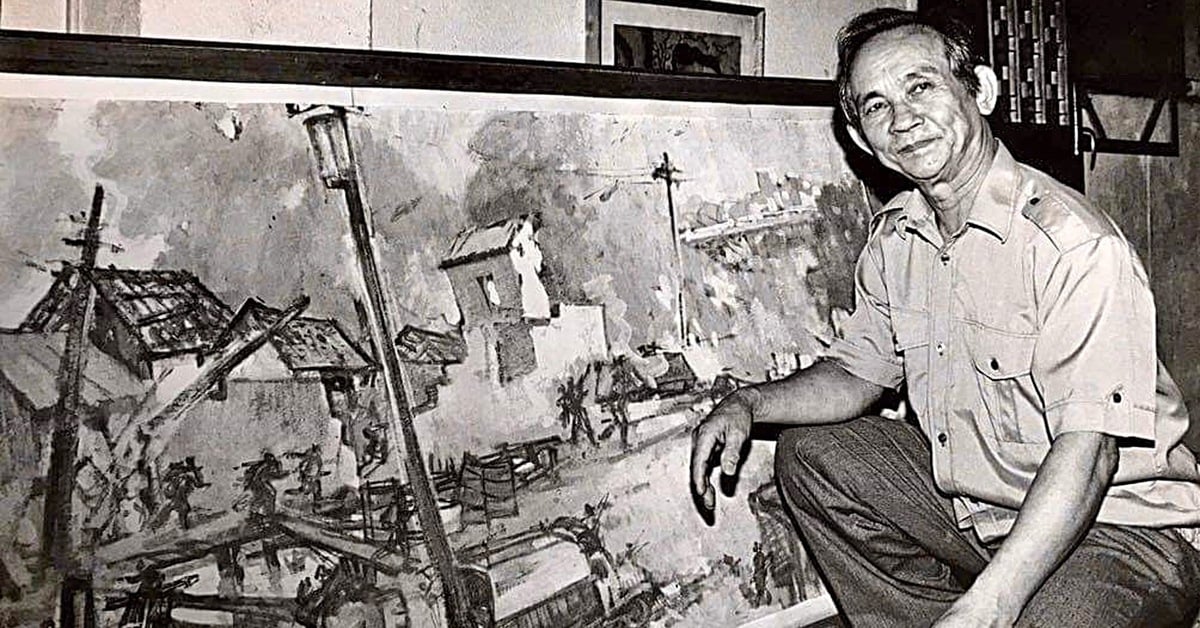























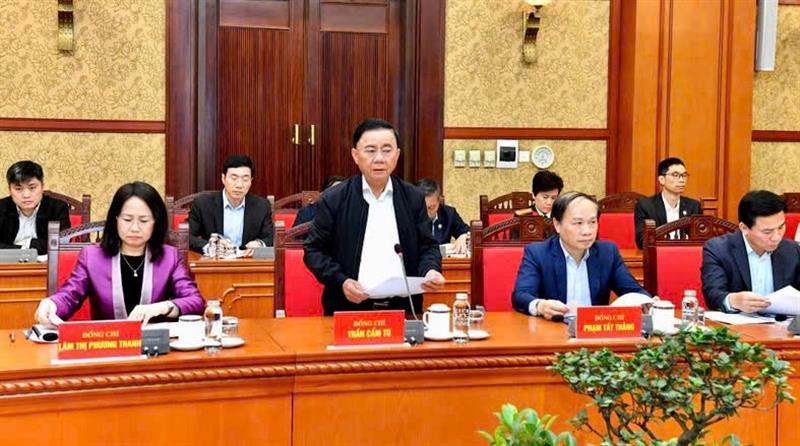


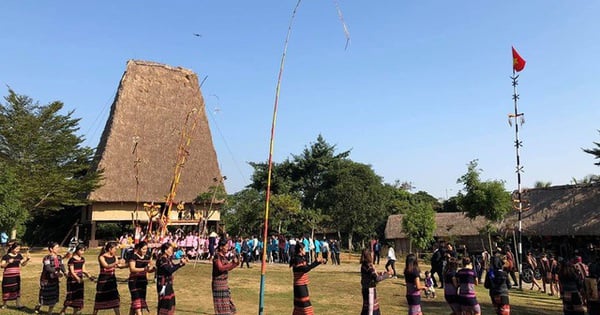
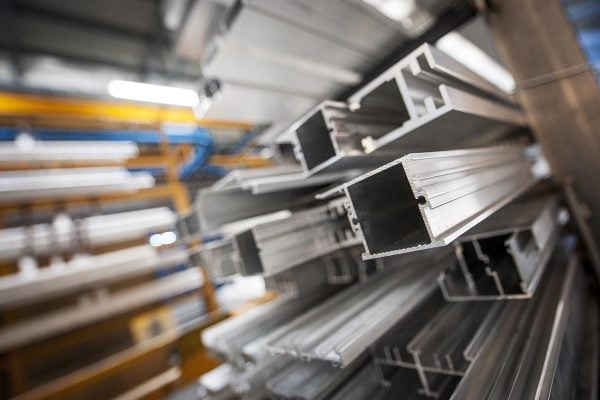

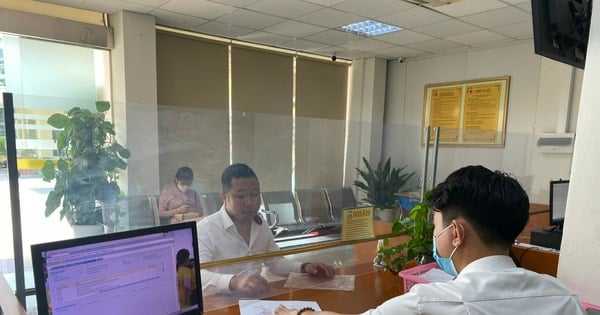

















Comment (0)